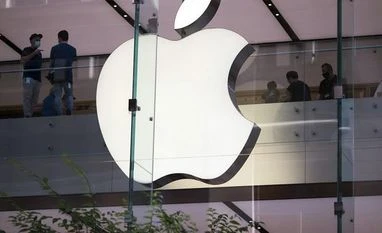A decline in global shipments of Apple’s personal computers (PCs), by a sizeable 40 per cent, in the first quarter of CY23 is a reflection of the slump in the segment in the recent past.
Analysts, however, feel that the Apple PC story in India is only just beginning and has the potential to lift the Cupertino-based firm’s market share in the country.
In India, the tech giant broke into the top five PC companies’ ranking for the first time in the fourth quarter of CY2022.
Experts that Business Standard spoke to said that although the first quarter of CY2023 may have seen the shipments slide for Apple, the firm can increase its market share from the current fifth position to fourth by the end of this year. Apple’s presence in the PC (personal computer includes laptops and desktops) segment in India is skewed towards MacBooks.
Apple’s presence in the Indian PC market has always been negligible with average shipments in the range of 30,000-50,000 per quarter. “Over the last 6-7 quarters, especially during the Covid pandemic, Apple got very aggressive in the Indian market with MacBook shipments going up to 150,000 per quarter,” said Bharath Shenoy, senior market analyst, PC devices, IDC India.
Till 2020, according to IDC data, Apple’s PC shipments averaged around 30,000-50,000 per quarter. During the festival season sales (July-October last year), Apple’s PC shipments went up to 300,000 for the first time.
“Of course that came down in the December quarter to slightly below 150,000. Going ahead too, we think that though the first quarter may see some softness due to inventory build-up, we see a rebound in Q2 and Q3, which is seen for the overall PC market, too,” added Shenoy.
Apple’s increased focus in India, particularly now with its opening of dedicated stores, would mean the firm is eyeing a larger share of the PC market, said analysts and industry experts.
“Going forward, we estimate that Apple will follow a similar trajectory as its smartphone segment in India. Although India is a smartphone-first country, we expect a steady growth curve for its PC segment,” said Tarun Pathak, research director at Counterpoint Research.
Pathak believes that the brand value and mindshare that Apple commands have the potential to force it into the top five in terms of volume too in the next few years — joining the likes of HP, Dell and Lenovo that play the volume game. “This leaves the floor open for the number four and five spots, which players like Apple, Acer and Asus can compete for. Some smartphone players like Xiaomi and Jio, which have recently forayed into the PC market, are also expected to give competition to Apple,” he added.
“Apple in India never had any presence in the commercial segment. Their buyer segment is very niche but that is slowly changing,” said a senior executive of a PC firm.
Two changes have made Apple increase its sales in India.
One, with component costs going up, the difference between an Apple MacBook and other brands have narrowed. Two, Apple is also making inroads into the enterprise segment, which has been the stronghold of PC manufacturers like Dell and Lenovo.
“The discount that Apple gives to students is fairly good. So students who can afford a slightly premium laptop have moved to Apple. The brand also got some push from start-ups who preferred to buy Apple products to attract talent,” said Shenoy.
Last year, firms such as Wipro began to offer Apple products to retain and attract talent. “B2B (business-to-business) is an important segment in the PC space. Apple, with its strong fundamentals from a B2B perspective, can grow further in this area,” added Shenoy.
One of the key reasons why Apple can succeed in the enterprise segment, according to Pathak, is the longevity of its devices. Apple products have high resale value and long life cycles that are fruitful from a B2B perspective.
“Apple’s success in the enterprise segment depends on its distribution channels and B2B relationships. It already has a separate B2B distribution network, which needs to be further strengthened,” Pathak added.
Unlock 30+ premium stories daily hand-picked by our editors, across devices on browser and app.
Pick your 5 favourite companies, get a daily email with all news updates on them.
Full access to our intuitive epaper - clip, save, share articles from any device; newspaper archives from 2006.
Preferential invites to Business Standard events.
Curated newsletters on markets, personal finance, policy & politics, start-ups, technology, and more.
)